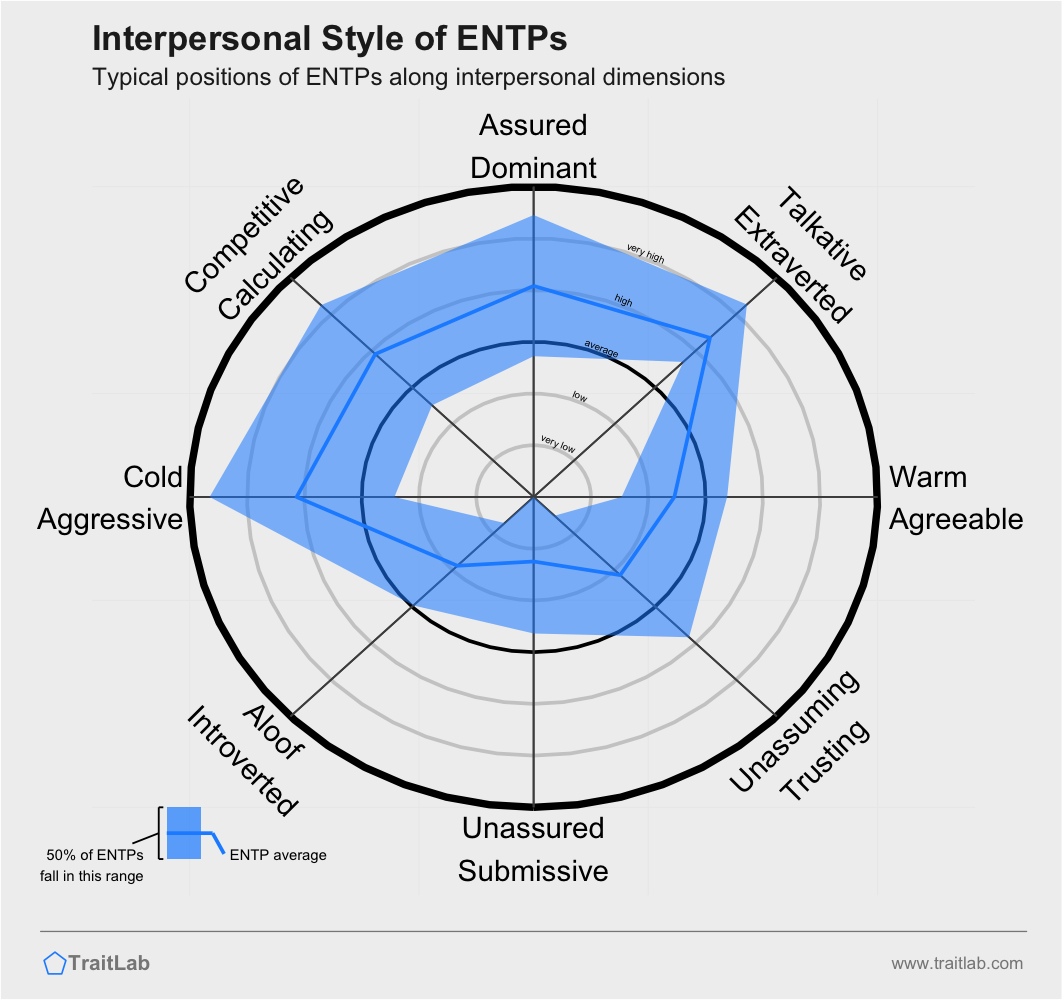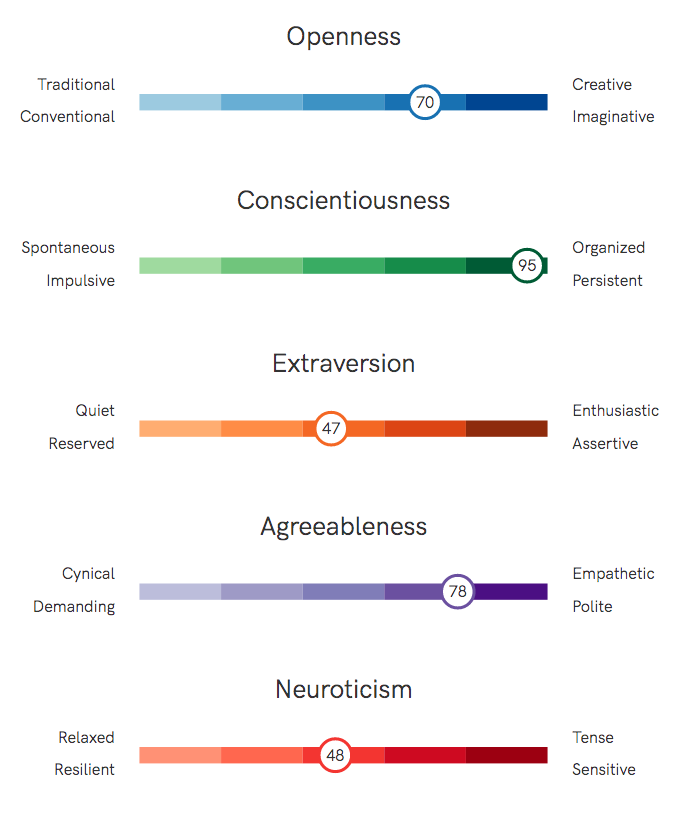Most ENTPs share a common interpersonal style and set of challenges.
Reading time: 5 minutes

Gregory Park, Ph.D.
Author
Most ENTPs share a similar interpersonal style, and this style impacts most of their relationships, including those with friends, families, work colleagues, and romantic partners.
For comparisons between ENTPs and other types, jump straight to these personality type comparisons.
Your interpersonal style describes your social tendencies in terms of dominance, submissiveness, warmth, and coldness. This style impacts how you interact with others, and in turn, it can affect how they act around you.
The circular graph below shows the average interpersonal style of ENTPs. The vertical, up-down axis shows their style in terms of dominance, with a highly assertive style at the top (Assured-Dominant) and a highly passive style at the bottom (Unassured-Submissive).
The horizontal, left-right axis shows their style in terms of warmth, with a cold and impersonal style on the left (Cold-Aggressive) and a friendly, empathetic manner on the right (Warm-Agreeable).

The shaded blue area shows the average interpersonal style of ENTPs across eight dimensions. Notice the areas where the blue area extends closer to the outer edges of the circle. These are the aspects that most heavily influence ENTPs’ interactions.
Despite their combative tendencies, ENTPs’ stability and self-confidence often support a secure and optimistic approach to relationships.
ENTPs’ assertive and assured style in social situations is often a strength, but in some cases, it can lead to a few characteristic interpersonal problems. What ENTPs see as a friendly and lively debate might feel more heated to others, and ENTPs can be seen as arguing, criticizing, or even fighting with others too much.
ENTPs often stand out by boldly challenging others and finding flaws in existing approaches. This natural tendency is often a powerful asset, but it has the potential to be disruptive to some team or organizational dynamics. ENTPs may have a harder time sitting back and simply taking direction from others or with dealing with authority in general.
Lastly, ENTPs are highly gregarious and very comfortable talking and sharing with others. Sometimes, ENTPs may get carried away and find themselves oversharing, or disclosing a bit too much about themselves.

Ready to see yourself clearly?
See an incredibly detailed analysis of your unique traits, strengths, and interests
To summarize the graph above, four aspects most heavily influence ENTPs’ interpersonal style:
For comparisons between ENTPs and other types from the 16 Personality typology, visit any of the type pairings below: